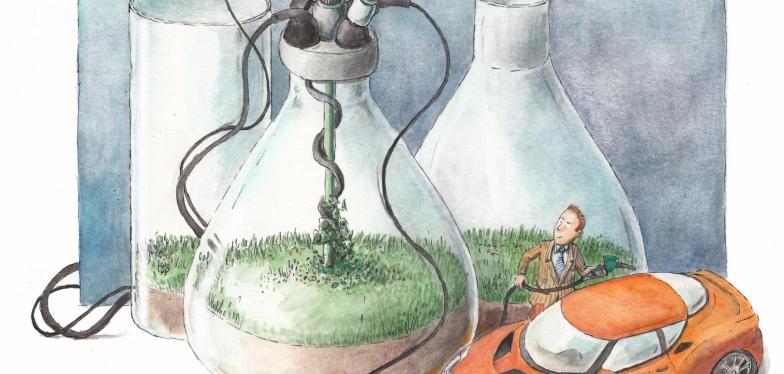Sawdust in your tank?
Researchers from the University KU Leuven have succeeded in extracting the building blocks of petrol or plastic from sawdust. Filling your tank at the University is not yet the order of the day, but who knows, in the future your petrol may come partly or fully from sawdust.

The KU Leuven experimented with sawdust, but the researchers believe it would work just as well with grass, cotton, straw or old paper. What's essential is the presence of cellulose: the main component in plant fibres.
Cellulose contains strong, middle long carbon chains, ideal for making petrol or chemicals. In oil, the carbon chains are too long and in shale gas too short, which means that, in both cases, extra processing is necessary. As the carbon chains in cellulose require no further processing, it will be easier and cheaper in the long term to extract them from cellulose rather than oil or shale gas.
An extra advantage is that cellulose is available everywhere; it is in fact plant waste. Furthermore it does not compete in farming with food crops.
The use of cellulose also goes much further than petrol. It can also be used to make ethylene, benzene and propylene, which in turn are the basis of plastic, rubber, insulating foam, nylons, coatings, etc. This possibility needs to be investigated further, but could be, in the long term, an even more profitable and sustainable way of using cellulose than to produce fuel. Learn more about it in this video.